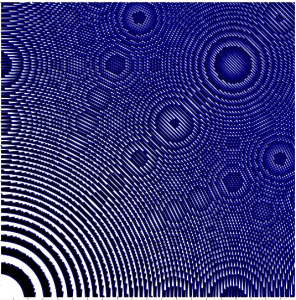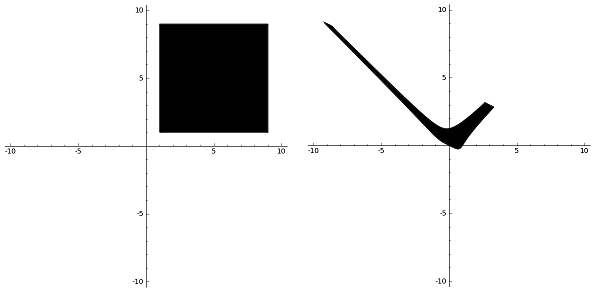This beautiful image is this year’s testament to trying new things and giving vague directions.

At the end of every school year I challenge myself to do something brand new in each of my classes. This could take the form of new mathematical content, a new kind of project, a novel technology, or something else entirely. What’s important is that it’s something I’ve never done before.
In this year’s Calculus courses, that new thing was Sage Mathematical Software. To get students familiar with plotting in Sage, I presented them with a mundane task. I gave them code that defined a square region in the plane and asked them to play around with some of the parameters to create a new graph, which they would then post in our class forum.
Naturally, I provided an example of what they might do.
 Having never done this with students before, and being a novice with the software myself, I didn’t really know what to expect. I suppose I expected students to produce graphs similar to what I had done. They didn’t.
Having never done this with students before, and being a novice with the software myself, I didn’t really know what to expect. I suppose I expected students to produce graphs similar to what I had done. They didn’t.
They played around with the functions, the colors, the domain and range. They inserted cotangents, exponential functions, and additional constraints. They found options for the region_plot function I didn’t know existed. I expected them to produce graphs of boring quadrilaterals, and instead, they produced beautiful, complex, and intricate contour maps like the one seen above.
This is what can happen when, instead of telling students to do A, B and C, you give them vague, open-ended directives like play around and share. More often than not, students rise to the occasion and create work that surprises and amazes. And this reminds us to keep trying new things in the classroom, if only to create opportunities for students to defy our expectations.
You can see more of the beautiful, diverse images the students created here.
Through Math for America, I am part of an ongoing collaboration with the New York Times Learning Network. My latest contribution, a Test Yourself quiz-question, can be found here



